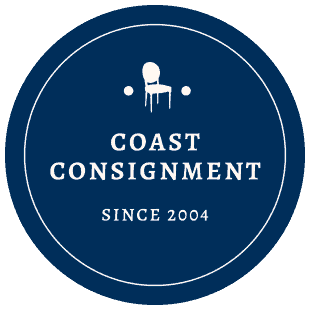Storage Lockers… The Cons
November 28, 2023
Storage lockers seem like a convenient solution to store those items we are not sure we will need in the future or that we don’t want to have in our homes but our reluctant to part with because of sentimental value. Storage lockers are certainly a good option for short term but long-term, not only are they expensive but many items placed in storage lockers come out with damage and wear.
We recently received an expensive Restoration Hardware leather cloud sofa that had been in storage for a couple of years. It was in a temperature & humidity controlled storage locker however, the sofa has been wrapped in moving plastic wrap and had been kept like that. This caused major damage to the sofa making it unsaleable due to it being squished like a tomato. These photos show it after it was unwrapped. Unfortunately this sofa does not have any value anymore and is a waste of a much coveted piece of furniture.

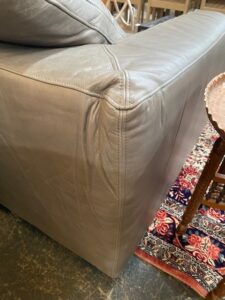
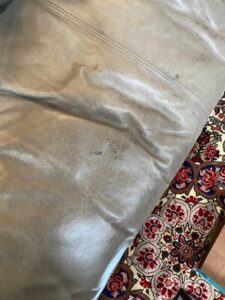
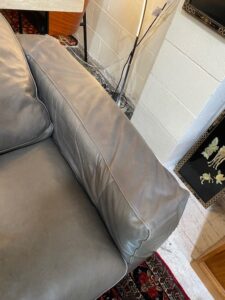
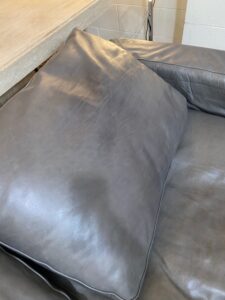
Unfortunately what happened to this sofa is not unusual and we won’t accept items from storage lockers anymore that have not been seen in person, photographed and inspected.
Recently I was asked to do a professional appraisal at a storage locker in East Vancouver. The storage locker was not temperature or humidity controlled and the pieces in the storage locker were suffering from all degrees of wear and damage including a stamp collection that is most likely now worthless due to damp. Same for the antique books, the mid-century modern teak sideboard and more. This was a less expensive storage unit but you get what you pay for an only a few things could be salvaged. As part of my professional appraisal I write a summary for the report to the Estate Trustee and it includes information about the condition of the premises where the pieces are being appraised at. In this case, it was not good condition and it resulted in a even more depreciation of value the assets stored in the locker. There were also gaps between storage lockers that could allow rodents and pests to roam freely.
Climate & Environment
When there is no temperature or humidity control, extreme hot and cold temperatures can warp and crack wood pieces and develop mould on wood and upholstered pieces.
Long-Term Storage Issues
The longer furniture is stored in storage lockers, the worse it’s condition. Especially if the furniture is wrapped, stacked and piled in half hazard with boxes on top or wrapped in plastic, carboard etc. Many movers do not realize how to handle and pack furniture into a storage locker to ensure that pieces are safe. Glass and marble often cracks if it is stored improperly or sits on it’s edge for years on end. Leaving furniture and other items in long term storage can result in fading, deterioration of fabrics and pieces suffer from lack of use and neglect.
Physical Damage & Poor Handling
Most people also want to try and use every square inch of their storage locker but that results in tings being stuffed in there on top of one another which causes further damage as many pieces of furniture or boxes of china, books etc are not meant to have huge weight on top of them for months and years on end. You need to ensure there is space to move around in the locker to find items you may need and to ensure items are not being squished or jammed and also, to be able to safely unpack the storage locker. Movers also need to be aware of how to carefully pack storage lockers to ensure possessions do not suffer damage and it’s important to convey the importance of this when using movers to add items to a storage locker. Communication is always key with your movers and it’s your resonsbility to let them know your needs and expetcations and expect to pay more for excellent moving and storage.


Changing Design Trends and Styles
What may be in style when you put the items in storage may no longer be in style when you take them out making them difficult to sell or not something that fits into your new premises design style or even size but in the meantime, you have spent $1000’s per year to store these items that neither you or anyone else wants anymore. It is probably best to try and sell or give away these items before moving them into storage if you are considering storing them for a year or longer. This way you not only save storage fees but can take them money you made storing the items to refresh your new home/office/cabin.
Insurance
Insurance is also a huge issue as most storage companies do not provide insurance coverage for your items stored so it’s vitally important you obtain additional insurance for your possessions to protect against damage, theft or other unforeseen events. This is an additional cost to consider on top of storage fees.
Access
Depending on the storage facility, you may have limited access to your items and this can be very inconvenient if you need to retrieve something quickly.
Seriously ask yourself whether or not you really need to store items before committing to the long-term storage process.
